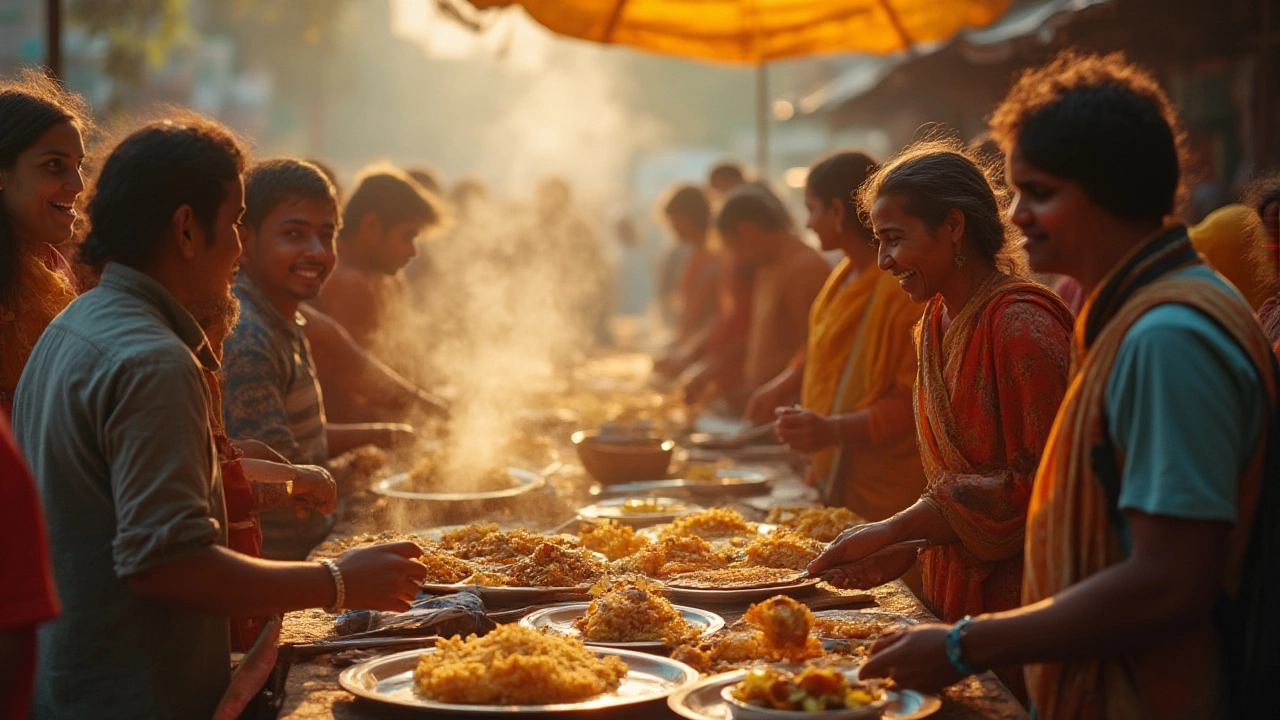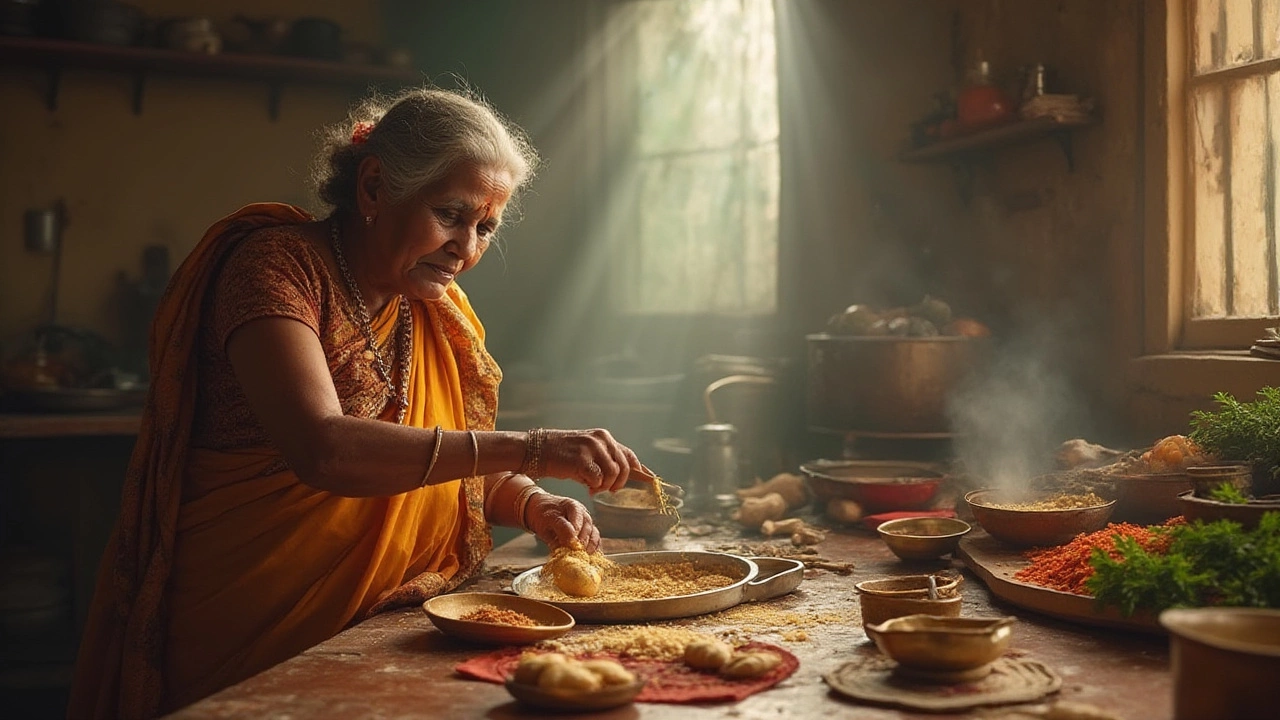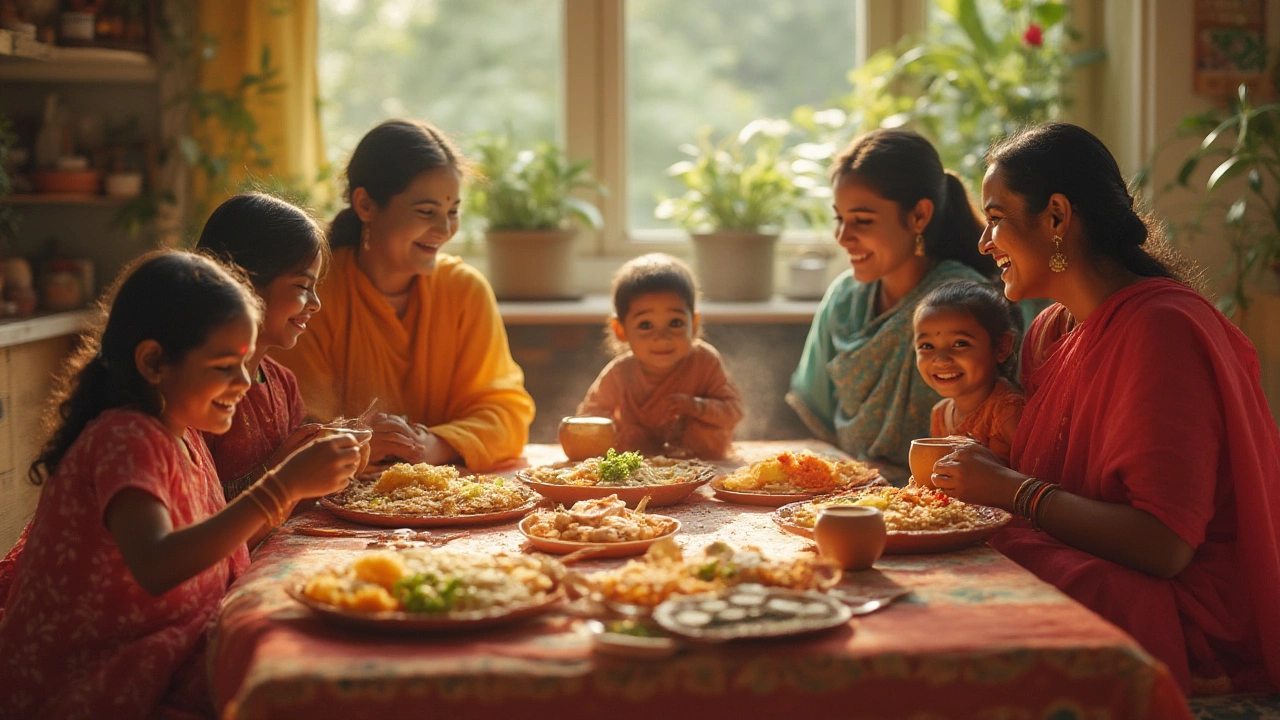Picture waking up in an Indian household. The aroma of simmering chai, mustard seeds crackling in oil, maybe the soft splatter of dosa batter on a hot tawa. People don’t just eat breakfast here—they live it. So, why is this meal so serious in India? Well, it’s not just about filling your stomach. There’s centuries-old wisdom behind that first bite of the day, and it’s wrapped up in both health and heritage.
India’s Cultural Connection with Breakfast
In India, breakfast is a daily ritual that connects generations. Let’s be honest: if you visit someone’s house in the morning, refusing breakfast is basically a crime. Indian parents will chase a child around the house with a plate of poha or a glass of milk. Why? Because in lots of Indian families, breakfast means care and love. Every region has its spin—from stuffed parathas in Punjab to appams in Kerala—and people take serious pride in their local flavors.
Tradition usually decides the spread. For example, South Indian breakfasts lean towards rice-based dishes like idli and dosa. North Indian tables might see hot puris or aloo parathas. Maharashtrians savor poha, while Gujaratis snack on the subtle sweetness of thepla. Here’s the fun part: recipes pass down through word of mouth, from grandmothers to mothers and now to the kids and grandkids (sometimes with a secret ingredient no one else knows).
Breakfast also ties directly into religious fasting and festivals. During Navratri or Ramadan, what and when people eat for breakfast changes completely, yet it still remains essential. Even in offices, you’ll find coworkers swapping tales of weekend brunches or tiffins filled with breakfast favorites.
Culturally, breakfast goes beyond food; it signals a good start to the day. People believe that skipping a meal in the morning is like starting a journey on an empty tank. And honestly, that belief holds up under the microscope of science too.
The Science: Why Breakfast Matters for Health
Now let’s get into the nitty-gritty: why does Indian tradition insist on breakfast? Science agrees with what our grandmothers have been saying for generations. After several hours of fasting overnight, your body needs fuel. The first meal wakes up the metabolism, stabilizes blood sugar, and helps set the tone for cognitive function. In fact, studies from the Indian Council of Medical Research showed that students who eat breakfast perform better in memory and attention tasks than those who skip it.
Breakfast isn’t just for school kids and workers—it matters for everyone. For diabetics, breakfast helps keep blood glucose stable. For teens and adults, regular breakfasts boost energy and even play a part in preventing lifestyle diseases like hypertension and obesity. Skipping this meal correlates with higher weight gain and a tendency to eat less nutritious food later in the day.
Check out the simple table below showing nutritional values of common Indian breakfasts:
| Dish | Calories | Protein | Fiber | Main Nutrients |
|---|---|---|---|---|
| Idli Sambar | 275 | 8g | 4g | Vitamin B, Iron |
| Poha | 200 | 3g | 2g | Carbs, Iron |
| Paratha (Aloo) | 350 | 7g | 5g | Carbs, Potassium |
| Upma | 180 | 4g | 2.5g | Vitamin C, Iron |
| Dhokla | 120 | 4g | 1g | Vitamin B, Calcium |
Notice something? These meals are filling but not loaded with fat. Instead, they bring a good mix of proteins, carbs, fiber, and micronutrients—all things your body craves after a long night’s sleep.
There’s more: a 2023 dietary survey in Mumbai schools found that 68% of children who ate traditional home-cooked breakfast scored higher in concentration tests compared to their peers who skipped breakfast or opted for processed foods. Your brain really does care about that first chapati or bowl of dalia.

Modern Challenges: Fast Lives and Vanishing Breakfasts
Honestly, it’s not all serene family meals and hand-ground chutneys anymore. These days, work commutes, online classes, and packed schedules make breakfast the first casualty. India’s urban youth, especially, are skipping the morning meal at a rate not seen before. In fact, a 2022 National Family Health Survey found that 37% of young adults in Indian metros regularly skip breakfast.
Why this shift? Convenience is one reason. Instant noodles or a sugary cereal masquerade as breakfast, and nobody blinks. Pulling a chocolate bar out of your bag at 10 AM? It’s normal, but it misses the point. Nutrition experts argue that processed foods loaded with sugar or empty carbs don’t provide stable energy, leaving you more tired and cranky by lunchtime.
There’s also the ongoing battle with body image and diet trends. Skipping breakfast is often seen as a quick way to cut calories. But research from the Public Health Foundation of India reveals, people who skip breakfast actually tend to snack unhealthily later and may gain more weight over time.
And then there’s the problem of accessibility. In rural parts, children might end up at school with just tea or flatbread, lacking enough protein or vitamins for growth. Government programs try to step in—India's Midday Meal Scheme now includes breakfast in some states to address child malnutrition. These moves highlight just how important breakfast is for health across all ages and incomes.
Staples and Superstars: What Makes Indian Breakfast Special
Let’s get to the good part: what’s on the table? Indian breakfasts combine taste with nutrition like few other cuisines. Think about the kick you get from upma’s mustard seeds or the cosy feeling of dipping parathas into curd. These meals often include local, seasonal vegetables, pulses, grains, and fermented foods—ingredients loaded with health benefits.
Take idlis, for example. Fermented, steamed, and bursting with probiotics. Or poha—flattened rice with crunchy peanuts, fresh coriander, and lemon juice (hello, Vitamin C). Aloo paratha is warming and filling, especially with a side of probiotic-rich curd. West Bengal’s luchi with cholar dal, Kerala’s puttu with kadala curry, Tamil Nadu’s rava upma—all give a different nutrient mix and tackle hunger head-on.
There’s a hack here: these meals suit every lifestyle. Short on time? Poha and upma take under 20 minutes. Want something satiating on a chilly morning? Paratha fits the bill. Watching your weight? Sprouted moong dosa or dalia offer protein and fiber without heavy fats.
You’ll also spot a rise in “fusion” breakfasts—oats idli, quinoa upma, or avocado paratha—especially in cities where young chefs are blending tradition with new trends. The result? Breakfasts that are quick, nutritious, and Instagram-ready.
Want to start your day traditional style but keep it light? Here are a few quick Indian breakfast tips:
- Soak poha or dalia overnight for quick cooking in the morning.
- Prep dosa or idli batter in big batches and freeze small portions.
- Add veggies to upma, poha, or thepla to sneak in fiber and micronutrients.
- Pair parathas or pooris with yogurt for protein and gut health.
- For the sweet tooth, try fresh fruit with porridge or ragi malt instead of sugary processed options.
And if you’re racing against time, don’t just skip it—grab a banana and some roasted chana or a boiled egg for quick, portable nutrition.

The Takeaway: Breakfast as a Daily Power Ritual
So here’s the not-so-secret secret: breakfast isn’t just a cultural formality in India—it’s a breakfast in India is your ticket to steady energy, better mood, and sharper brains all day. Those family meals you grew up with? Turns out, they’re not just for nostalgia. Their well-balanced recipes offer exactly what nutritionists recommend: protein, complex carbs, minerals, and sometimes even a side of warmth and love that can’t be measured in calories.
A healthy Indian breakfast habit may sound old-school, but new research proves its worth. People who eat a balanced morning meal have a healthier BMI, lower risk of heart issues, and more consistent focus levels. And thanks to the endless variety on offer, you can pick your meal to fit your lifestyle—whether you’re running out the door, logging onto calls, or sharing a hot parantha with family before school.
The next time someone asks why breakfast matters in India, you’ll know: it’s fuel for the body, comfort for the mind, and a daily reminder that health and heritage are best served warm and fragrant, straight from the kitchen.
